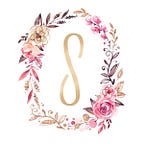The Prophet
by Kahlil Gibran
The book is a conversation between Almustafa, the chosen and beloved and the people of Orphalese (the city where he lived for 12 years waiting for the ship to take him back to his isle of birth). The people don’t want him to leave without parting his knowledge and hence they ask him questions on various aspects of life. Some of the words touched me deeply and helped me understand a lot of things.
Love
“For even as love crowns you so shall he crucify you. Even as he is for your growth so is he for your pruning.
Even as he ascends to your height and caresses your tenderest branches that quiver in the sun,
So shall he descend to your roots and shake them in their clinging to the earth.”
Love brings you happiness but pain comes inevitably along with it. Love is not just a bed of roses; the thorns are always there. If you want love, you have to be ready for the heartbreak and pain that come with it.
“And think not you can direct the course of love, for love, if it finds you worthy, directs your course.”
Children
“They come through you but not from you,
And though they are with you yet they belong not to you.
You may give them your love but not your thoughts,
For they have their own thoughts.”
We live in a society where listening to everything your parents ask you to do is considered ideal. If you don’t do as they say then you are “an ungrateful child”. But do these rule makers ever take the children’s thoughts into consideration? Being it choosing a career or a life partner, parents think they know best about what the child should do. But what about the child’s hopes and dreams? What about their interests and aspirations? It’s not necessary that the child will want exactly what the parents want. Because of this so many children just give up on having their own goals. They just go along with their parents’ idea of a perfect career or a perfect life. Our generation needs to make sure that we don’t continue this long-standing ritual of forging our children’s lives.
Joy and Sorrow
“Your joy is your sorrow unmasked.
And the selfsame well from which your laughter rises was oftentimes filled with your tears.
And how else can it be?
The deeper that sorrow carves into your being, the more joy you can contain.”
Joy and sorrow have the same base emotion, they come from the same place in your heart. They are two sides of the same coin. The more sadness you suffer, the more happiness you are capable of feeling. Let’s take a very simple example. If you lose something precious it causes you extreme sadness, and when you find it again you feel even more happier than when you originally had it.
“When you are joyous, look deep into your heart and you shall find it is only that which has given you sorrow that is giving you joy.
When you are sorrowful look again in your heart, and you shall see that in truth you are weeping for that which has been your delight.”
This kind of corelates with love being the reason of your pruning. When you are hurt because of love, it’s the same love that once brought you happiness.
This is just a small part of all the beautiful lines that this book contains. Reading this book gave me clarity on a lot of things which I never properly understood before. If you’re an avid reader I suggest you read The Prophet, or even if you don’t read much you can try this one out. I promise you will gain at least a little bit of wisdom out of it.
